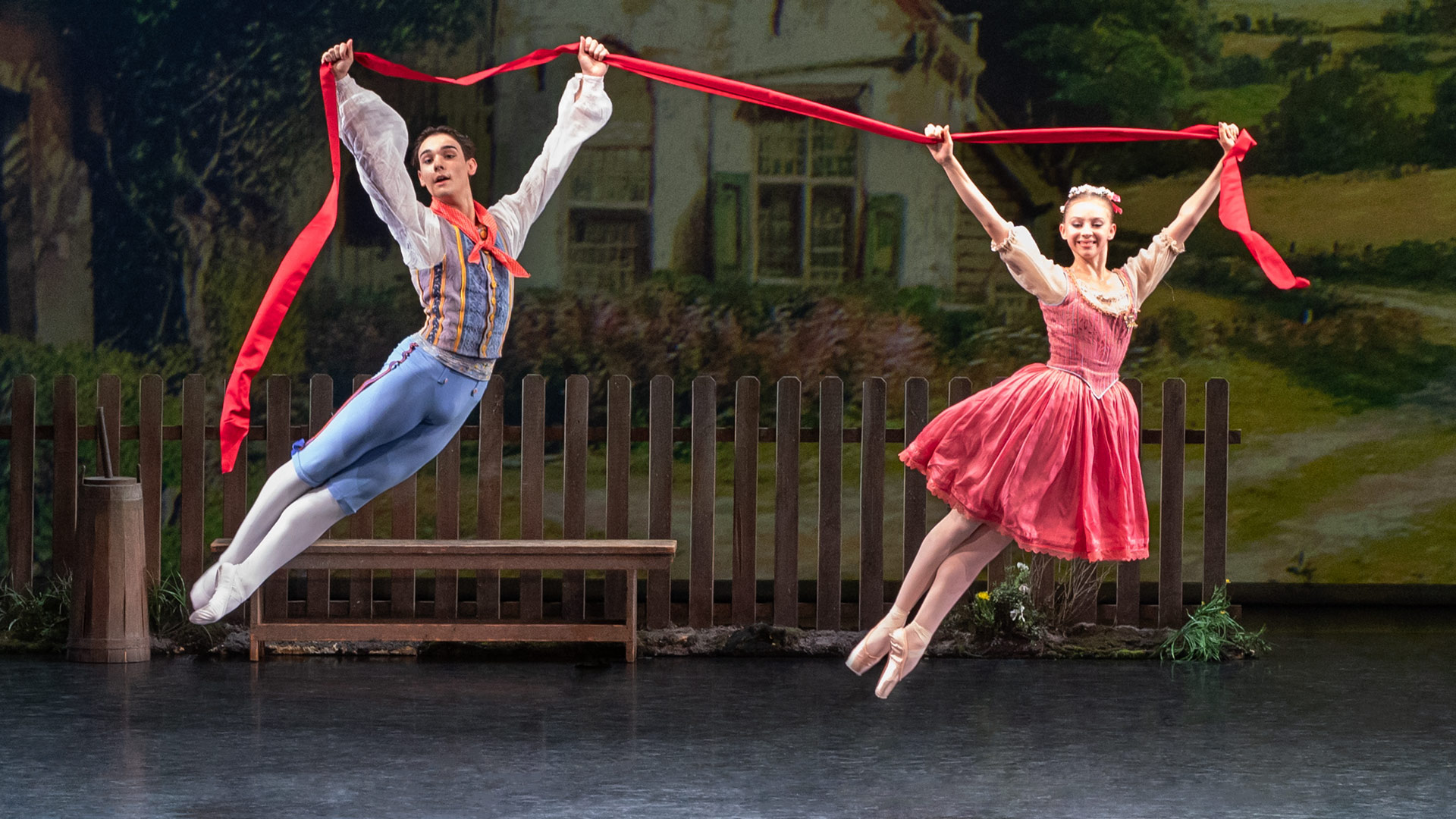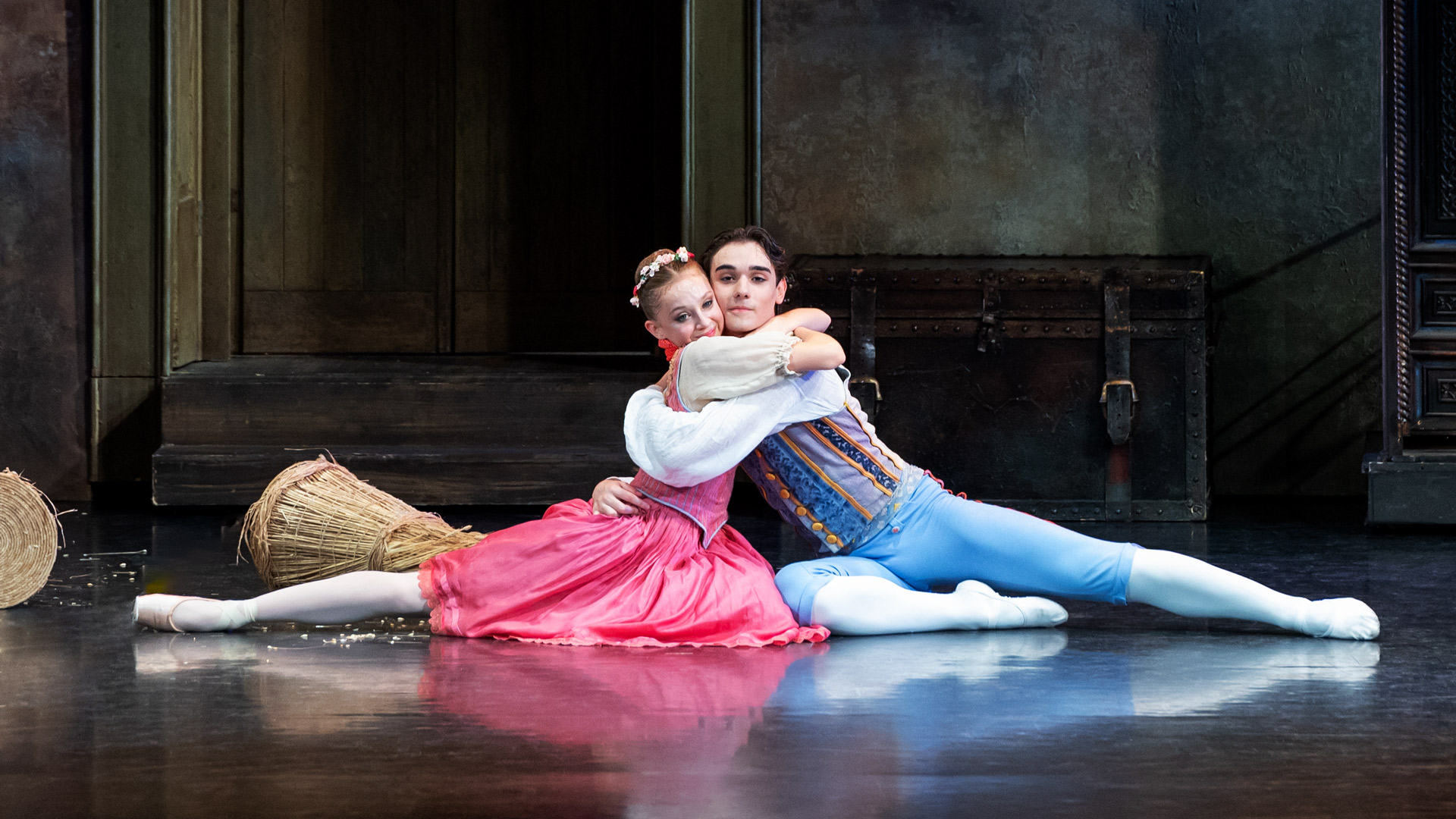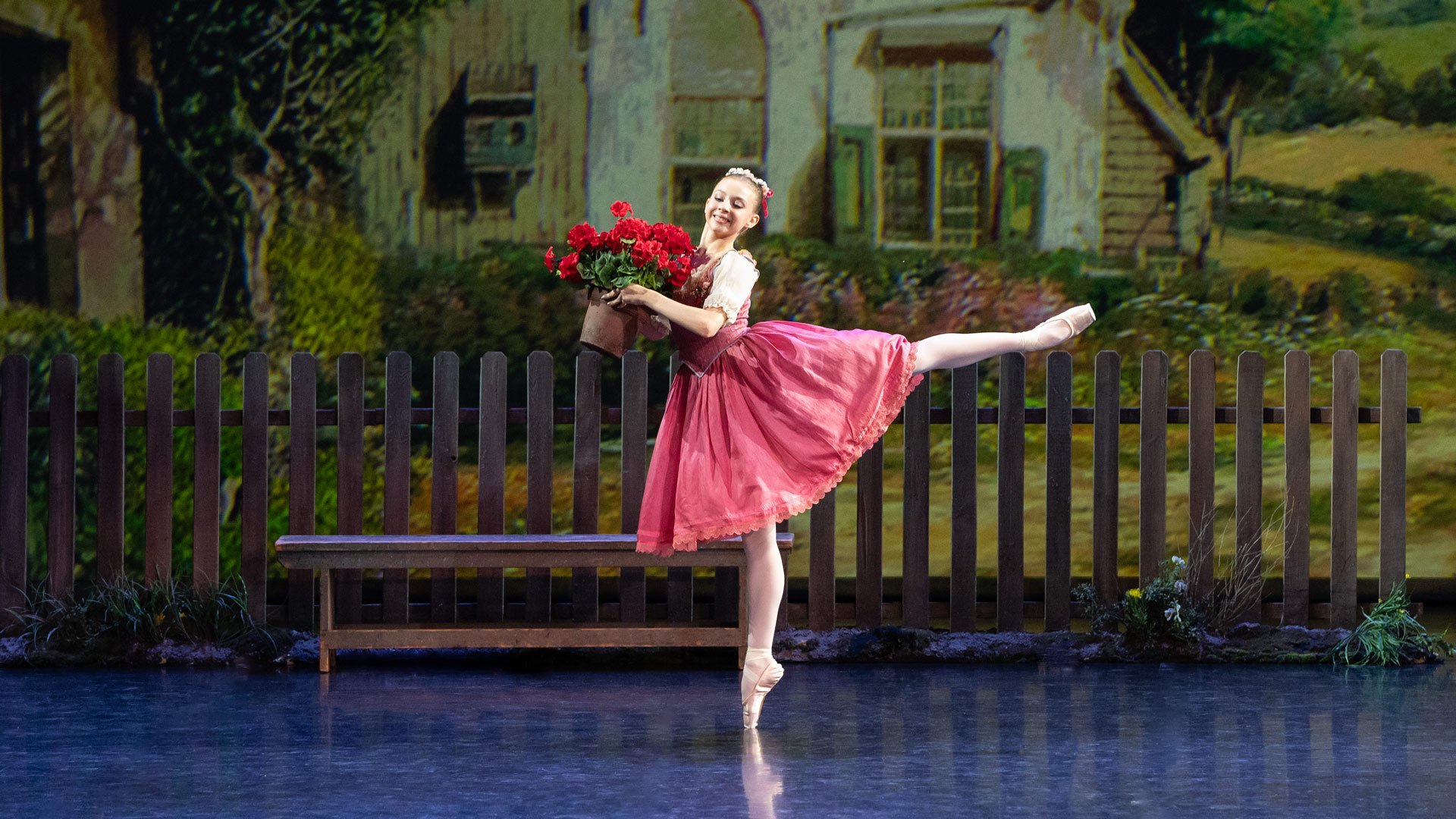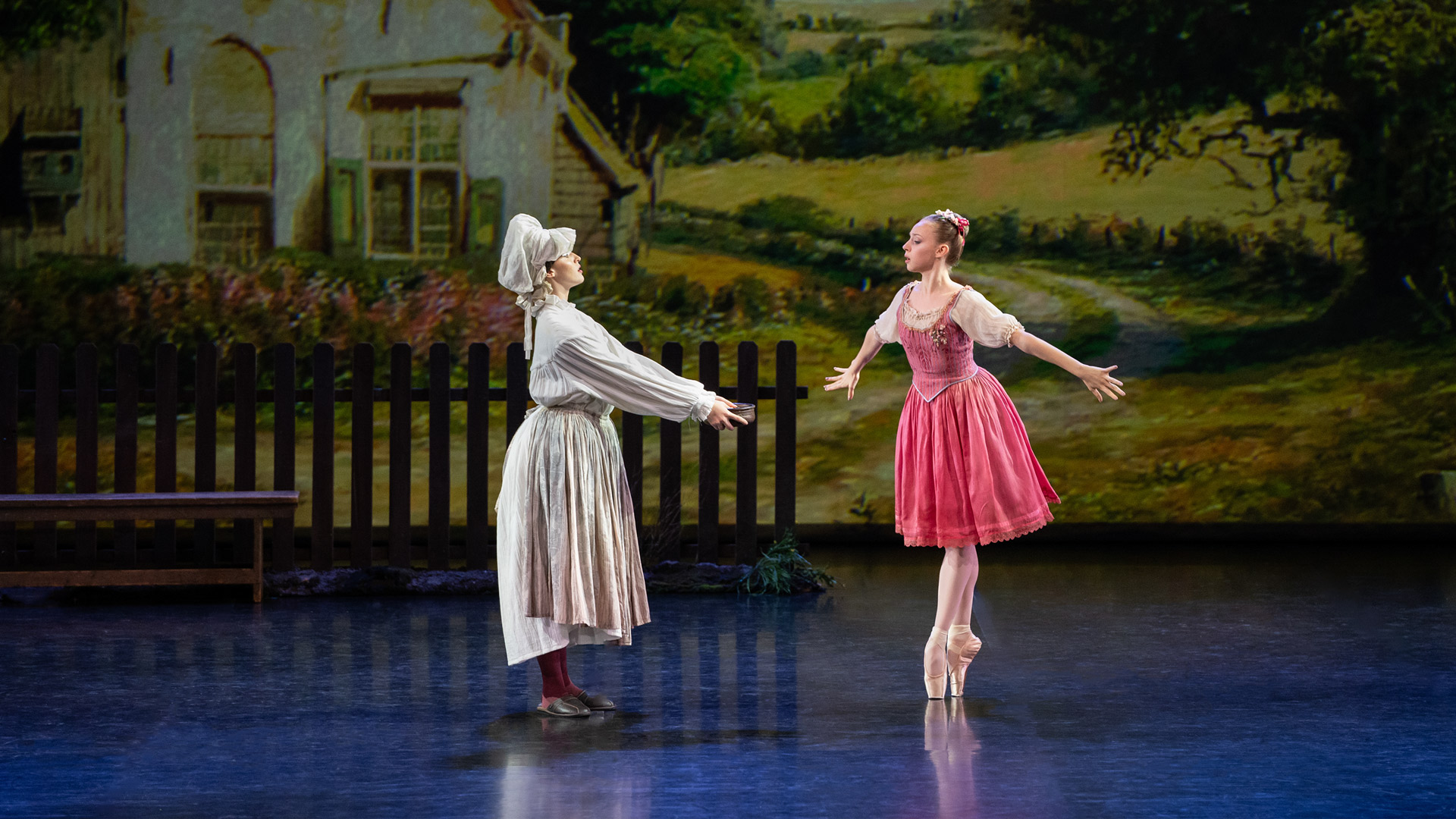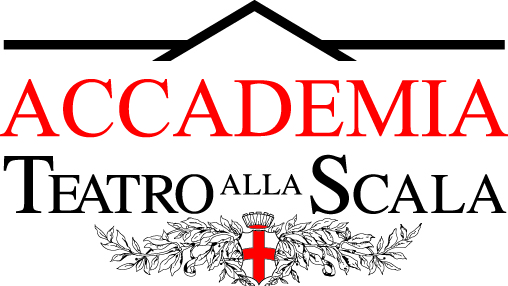
Scuola di Ballo dell’Accademia Teatro alla Scala
directed by Frédéric Olivieri
LA FILLE MAL GARDÉE
Ballet in two acts
Choreography: Frédéric Olivieri
Music: Peter Ludwig Hertel (edition Mario Bois, Paris)
Scenes: Angelo Sala
Costumes: Luisa Spinatelli, revised by Maria Chiara Donato
Lighting: Andrea Giretti
We would like to thank the Fondazione Milano per la Scala balletto and Mrs Hélène de Prittwitz Zaleski
The Ballet School returns to perform La fille mal gardée, which debuted at the Teatro alla Scala in April 2023 with choreography by Frédéric Olivieri to the score of Peter Ludwig Hertel. La fille mal gardée is one of the oldest ballets to have remained in the repertoire, having originated at the time of the French Revolution. Jean Bercher Dauberval created the ballet’s first choreography, entitled Le ballet de la paille, ou il n’est qu’un pas du mal au bien, which was performed at the Grand Théâtre de Bordeaux in 1789, based on a medley of French folk songs and themes. The ballet was performed many times over the years and underwent numerous changes to the title, the names of the characters, the choreography and the musical score. The ballet, which presents various pantomime numbers as is the tradition of the 18th century comique genre and in which the setting of the period immersed in a rural context and in a peasant reality prevails, tests the students of the Scaligeri School of Dance not only on a technical level. The choreography is designed to enhance their classical-academic skills, but also their interpretative skills, as it requires considerable irony and gestural skills, especially for some of the characters, such as Madame Simone, here interpreted by a student and not by a traditional dancer en travesti. On stage there are about sixty very young dancers between the 2nd and 8th year of study.
FRÉDÉRIC OLIVIERI
Born in Nice, after graduating from the Conservatory, in 1977 he won first prize at the Prix de Lausanne, thus gaining automatic entry to the Paris Opera Ballet School. He then danced with the Paris Opera Ballet under the direction of Violette Verdy, Rosella Highthower and Rudolf Nureyev. At the Paris Opera, as a solo dancer from 1981, he danced the most important roles in the classical repertoire and worked with numerous guest choreographers such as Maurice Béjart, John Neumeier, Kenneth MacMillan, Alwin Nikolais, Alvin Ailey, Paul Taylor, Glen Tetley, Roland Petit. In 1985 he joined the newly formed Ballets de Monte Carlo company as Principal Dancer under the direction of Pierre Lacotte and Ghislaine Thesmar, soon becoming Étoile and, until 1993, he interpreted the major roles of the classical repertoire and was the protagonist of creations designed specifically for him by choreographers such as Uwe Scholz, Jean Christophe Maillot, John Neumeier, Roland Petit. In 1993 he became Principal of the Hamburg Ballet, directed by John Neumeier, with whom he ended his brilliant dancing career. Between 1996 and 2000 he was at the Maggio Musicale Fiorentino, first as Maître de Ballet of the MaggioDanza company and from 2000 as Artistic Director, also taking on the role of Maître de Ballet and artistic consultant for the Zurich Opera Ballet directed by Heinz Spoerli in 1998. Also in 2000, he was appointed principal ballet master of the corps de ballet of the Teatro alla Scala, of which he became artistic director in 2002, a role he held until 2007 and again between 2017 and 2020. During his tenure he expanded and renewed the repertoire of the La Scala company with new productions of great ballets as well as new creations by artists of undisputed calibre. Since 2003 he has been Director of the Dance Department of the Accademia Teatro alla Scala and since 2006, as Director of the historic La Scala Dance School, he has given his students the opportunity to attend masterclasses with internationally renowned dancers and choreographers, enriching the repertoire with important titles. For the School he also choreographed new editions of famous ballets, such as The Nutcracker to music by Tchaikovsky, Cinderella to music by Prokofiev and La fille mal gardée to the score of Peter Ludwig Hertel. Among the awards he has received are the Leonide Massine Prize (1986), the title of ‘Knight of the Order for Cultural Merit’ conferred on him by Prince Rainier of Monaco (1992) and that of ‘Knight of Arts and Letters’ awarded to him by the French Minister of Culture (2005). In 2025, he returned to direct the Corps de Ballet of the Teatro alla Scala.
FONDAZIONE ACCADEMIA TEATRO ALLA SCALA
We have to go back to the birth of the Ballet School, in 1813, to find the first traces of the vocation that the Teatro alla Scala has always shown towards the younger generations, with the desire to pass on its inestimable wealth of knowledge, not only the opera and dance tradition, but also its creative and managerial skills. After the creation of specialisation courses for opera singers in 1946, and a course for set designers in the 70s, the training activities linked to the Milanese Theatre have undergone constant development. The progressive diversification of the courses offered led in 1991, under the supervision of Carlo Fontana, to the creation of an internal department (Schools, Training and Development Department) which, in 2001, became independent from the Theatre, as a Foundation. Today the Accademia Teatro alla Scala, chaired by Victor Massiah and directed by Luisa Vinci, offers over thirty courses in four departments – Music, Dance, Stagecraft and Management – covering all aspects of the performing arts. The teaching staff is made up of artists and professionals from the Teatro alla Scala, together with leading experts in the field. The teaching method guarantees a complete education thanks to a theoretical-practical approach that favours daily experience on stage and behind the scenes: concerts, shows, exhibitions, as well as the ‘Progetto Accademia’ (Academy Project), a work included annually in the La Scala season, are the testing grounds to which students are constantly called, not only on the national territory. In addition to the Teatro alla Scala, the founding members are the Lombardy Region, the Municipality of Milan, the Milan Chamber of Commerce, Intesa Sanpaolo, the Berti Onlus Foundation, the Bracco Foundation, the Milan for the Scala Foundation and Techbau.
SCUOLA DI BALLO DELL’ACCADEMIA TEATRO ALLA SCALA
The heart of the Dance Department, directed since 2003 by Frédéric Olivieri, who is also currently the Director of the Corps de Ballet of the Teatro alla Scala, is the Dance School, which is still today one of the most prestigious institutions in the field of advanced dance training. Founded in 1813 by Francesco Benedetto Ricci as the ‘Imperial Royal Academy of Dance’, the Scala School has seen a succession of famous dancers and prestigious teachers at the helm. The course lasts eight years (for students aged between 11 and 18) and leads to a diploma with a double specialisation in classical ballet and modern/contemporary dance, in line with the requirements of the major international companies that expect professional dancers to master an increasingly wide and diversified repertoire. During their studies, students participate in various productions during the season at the Teatro alla Scala and perform on important stages, in Italy and abroad. The interpretation of the most famous choreographies by masters of yesterday and today such as August de Bournonville, Marius Petipa, George Balanchine, Anton Dolin, José Limón, Roland Petit, Maurice Béjart, Mario Pistoni, Mats Ek, Jiří Kylián, William Forsythe, Angelin Preljocaj, Mauro Bigonzetti, Demis Volpi is fundamental for their artistic growth. In addition, Shantala Shivalingappa, Matteo Levaggi, Emanuela Tagliavia and Valentino Zucchetti have created specifically for the Davide Bombana School of Dance. Finally, we note the new choreographic versions of the great titles of the repertoire by Frédéric Olivieri such as Lo schiaccianoci, Cenerentola and La fille mal gardée.

